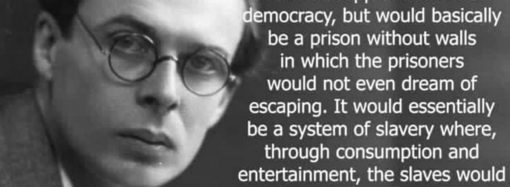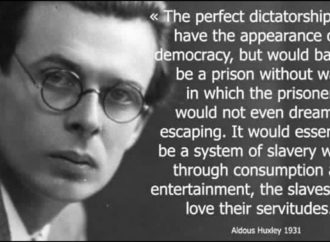Women for the most part do not love us. They do not choose a man because they love him, but because it pleases them to be loved by him

Woman’s Love
There is no paradise on earth equal to the union of love and innocence.
— ROUSSEAU
ACCORDING to Lord Byron, “Man’s love is of man’s life a thing apart; ’tis woman’s whole existence;” and under a thousand images the poets of all ages have depicted her as a mysterious mixture of joy and sadness, of agony and delight. But the truth of the well-known apothegm cannot be denied, “‘Tis love, ’tis love that makes the world go round,” for:–
Love rules the court, the camp, the grove,
And men below and saints above;
For love is heaven, and heaven is love.
It is only natural that much should have been written on woman’s love–that inexhaustible theme which will continue to hold its sway till the end of time; for, as it was long ago said, “A woman will dare anything when she loves or hates.” And yet, strange to say, it must be acknowledged the love of woman has always been more or less enigmatical in the eyes of man, on account of its only too often eccentric and contradictory nature. Thus Middleton speaks of love’s strange antics:–
Love is ever sick, and yet is never dying,
Love is ever true, and yet is ever lying;
Love does doat in liking, and is mad in loathing:
Love, indeed, is anything; yet, indeed, is nothing.
Southwell describes a woman’s loving looks as “murdering darts,” and elsewhere he says:–
She offereth joy, but bringeth grier,
A kiss–where she doth kill.
The hesitancy with which a woman furtively, and oftentimes playfully, tries to conceal her love by a slight cough, has from an early period been humorously recognised in proverbial love, as in the old adage, “Love and a cough cannot be hid,” the Latin equivalent of which is, “Amor tussis que non celantur,” versions of which are to be met with in French and Italian proverbs. Similarly we may compare the proverb:–
When a musician hath forgot his note,
He makes as though a crumb stuck in his throat.
Thackeray has described “the delights and tortures, the jealousy and wakefulness, the longing and raptures, the frantic despair and elation, attendant upon the passion of love;” and, indeed, volumes might be written illustrative of the mysterious workings of woman’s love, although Alphonse Karr went so far as to affirm: “Women for the most part do not love us. They do not choose a man because they love him, but because it pleases them to be loved by him.” But, whatever may have been written descriptive of love, its influence is indisputable, and as the Scotch say, “Love is as warm amang cottars as courtiers;” and, as it has been truly said:–
The rose blooms gay on shairney brae,
As weel’s in briken shaw;
And love will lowe in cottage low,
As weel’s in lofty ha’;
with which may be compared the English equivalent, “Love lives in cottages as well as in courts.”
Proverbial literature naturally has much to say on the power of a woman’s love, and, according to a popular French adage, “Love subdues all but the ruffian’s heart;” and history abounds in illustrations of this maxim, which under a variety of forms is found all over the world, one of the best-known versions being, “Love rules his kingdom without a sword.“
And yet it is agreed that woman’s love is only too frequently far from kind, for, as it was proverbially said by our forefathers, “Love is a sweet tyranny, because the lover endureth his torments willingly.” The French have a proverb to the same effect: “He who has love in his heart has spurs in his sides,” the chief reason for this being the anxiety of the fair sex to show their mastery over man; for, like St. Augustine, they have always been of opinion that “he that is not jealous is not in love.” Hence a woman is fond of testing her lover’s faith by kindling his jealousy, adhering to the time-honoured proverb, “There is no love without jealousy.” On the other hand, we are told that “Love expels jealousy,” and, according to an Italian belief, “It is better to have a husband without love than with jealousy,” which calls to mind Iago’s words (“Othello,” act iii. sc. 3):–
O, beware, my lord, of jealousy,
It is the green-eyed monster which doth mock
The meat it feeds on.
But jealousy is not confined to either sex, for–
The venom clamours of a jealous woman
Poison more deadly than a mad dog’s tooth.
But it is generally agreed that there is nothing worse than a jealous woman, and a piece of African proverbial wisdom tells us that “a jealous woman has no flesh upon her breast; for, however much she may feed upon jealousy, she will never have enough.”
And yet, although French romance is full of the tortures which lovers have experienced from the fair sex, it is said:–
Amour, tous les autres plaisirs
Ne valent pas tes peines,
Which has been translated thus: “O Love, thy pains are worth more than all other pleasures“–a statement which is much open to doubt.
Again, woman’s love when it “comes apace” is to be avoided as untrustworthy and likely as suddenly to wane; on which account it is commonly said, “Hasty love is iron hot and iron cold.” In “Ralph Roister Doister,” written about the year 1550, Christian Custance says: “Gay love, God save it! So soon hot, so soon cold.” But the love which lasts is that recommended in one of Heywood’s proverbs, “Love me little, love me long,” which Hazlitt mentions as the title of an old ballad licensed to W. Griffith in 1569-1570.
Woman’s love has ever been open to reproach as being fickle and unstable, and Southey, quoting the popular sentiment, says:–
There are three things a wise man will not trust,
The wind, the sunshine of an April day,
And woman’s plighted faith;
further instances of which trait of character will be found elsewhere, where we have dealt with the fickleness of the fair sex. But the swain who is disheartened by his lady-love’s coquetry, and is afraid of losing her through excessive wooing, folk-lore admonishes him thus:–
Follow love and it will flee;
Flee love, and it will follow thee.
Indeed satirists have long since told us, in most countries, the folly of believing in a woman’s expression of love, as “the last suitor wins the maid“–an adage which has also been expressed in this proverbial couplet:–
The love of a woman and a bottle of wine,
Are sweet for a season and last for a time.
and it has been suggested that it was owing to woman’s fickleness that the saying originated, “Happy is the wooing that is not long in doing”–the prudent man thereby not giving her the opportunity of changing her mind.
But fickle and unstable as a woman’s love probably may be, there is no gainsaying its power, and in China it is said of a woman who captivates a man, “With one smile she overthrows a city; with another a kingdom.” According to the popular tradition this proverb originated in the following circumstance:–A certain lady named Hsi-Shih, the concubine of Fu Cha, King of the ancient State of Wu. She was eminently beautiful, and her beauty so captivated her lord that for her sake he neglected the affairs of his kingdom, which in consequence fell into disorder and ruin.
Whatever the value either of a woman’s love or beauty, the folk-tales of most countries agree in one respect–the exacting conditions demanded of the suitor, as a price for gaining his heart’s desire, although, under a variety of forms, the subjoined couplet is no doubt founded on the experience of womanhood:–
Lads’ love is lassies’ delight,
And if lads don’t love, lasses will flite [scold].
And yet, according to a common piece of West African wisdom, “If thou givest thy heart to a woman she will kill thee.” Wanting in chivalry, as many such proverbs are, there is one current in China, the truth and wisdom of which most persons will endorse: “Where true love exists between husbands and wives, they’re happily joined to the end of their lives.”
Previous / The Folk-Lore of Women / Next
Part of the collection of – A Wrinkle In Time
Backed Up and Credited by – no-maam.blogspot.com
































Leave a Comment
Your email address will not be published. Required fields are marked with *